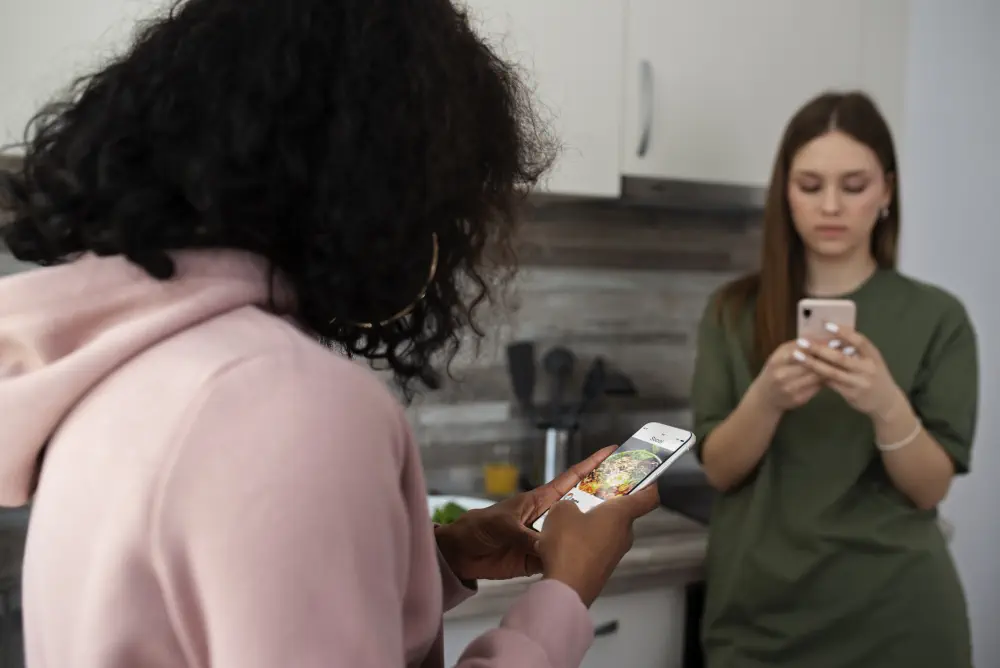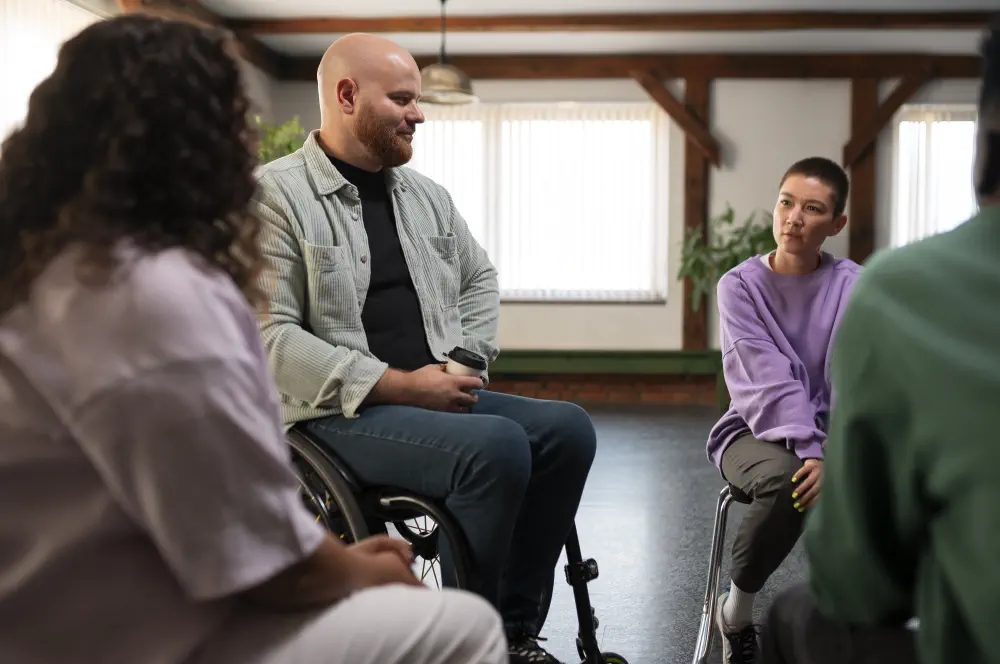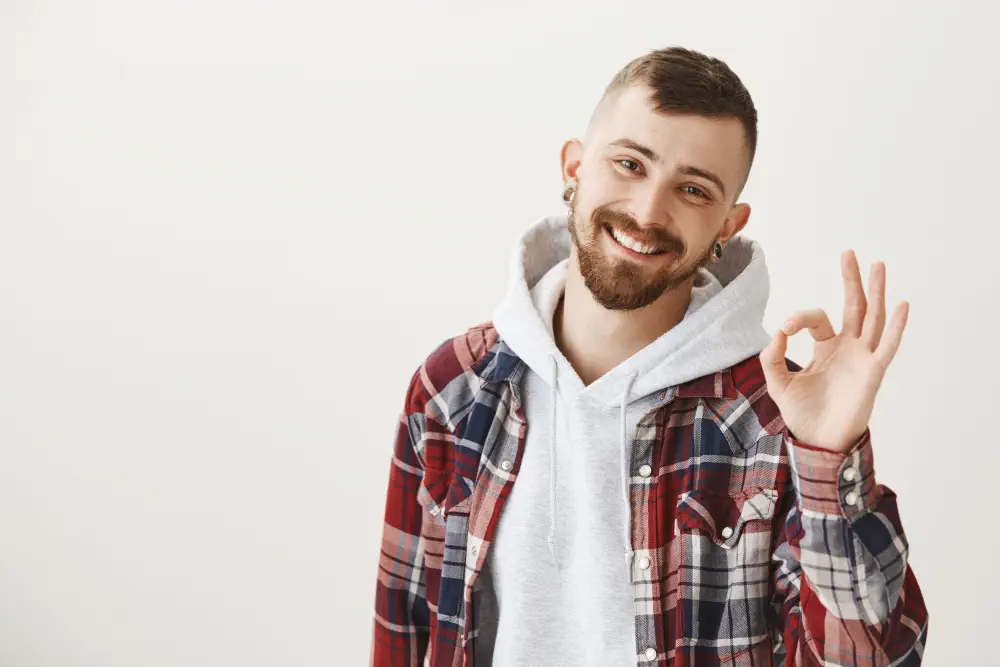We offer medical detox and multiple addiction treatment options in our
luxury treatment centres in Port Hope, Cobourg, and Ottawa.
What Are the Side Effects of Vyvanse and Alcohol?
Mixing prescribed or over-the-counter medications with alcohol can have serious consequences, and Vyvanse is one such drug. Vyvanse is a stimulant intended to increase focus and impulse control in a person, often used to treat ADHD and binge eating disorder. When mixed with alcohol, the results can be dangerous. Studies have shown that nearly one-quarter of people with ADHD medications like Vyvanse report drinking on their medication without knowing the possible risks.
Key Takeaways
- Vyvanse and alcohol have opposing effects: This mix can mask intoxication and impair judgment, creating serious health risks.
- Heart risks increase: Vyvanse raises heart rate and blood pressure, while alcohol disrupts rhythms, raising the chance of heart issues.
- Mental health can be affected: Combining Vyvanse and alcohol may lead to anxiety, mood swings, and unstable behaviour.
- Impaired judgment and dehydration risks: Vyvanse can hide alcohol’s sedative effects, leading to overdrinking and dehydration.
- Awareness is key: Knowing these risks helps Vyvanse users avoid serious health consequences.
Combining Vyvanse and alcohol masks signs of intoxication, leading people to drink more than they realize. This puts great stress on the heart and increases the risk of poisoning, high blood pressure, and other dangerous health issues. Additionally, each substance influences the brain differently, which can lead to anxiety, mood swings, or impaired judgment.

Patients using Vyvanse should be informed about the risks of combining it with alcohol. This article will outline some side effects, how Vyvanse works, its interaction with alcohol, and why mixing them is best avoided. Let’s dive in and discuss these risks!
What Is Vyvanse?
Vyvanse is used to treat ADHD and binge-eating disorder. This medication belongs to a class of drugs called stimulants. Generally, stimulants act on the central nervous system by increasing the levels of various neurotransmitters in the brain. These include dopamine and norepinephrine, which are essential in regulating attention and focus, among other activities.
So, what is Vyvanse designed to do? It provides much-improved concentration, lesser hyperactivity, and a wider span of attention for people with ADHD. It aids individuals who have this disorder to conduct themselves in such a way that makes them better manage their symptoms, improving their performance at work or school and enhancing daily functioning. For binge-eating disorder, Vyvanse reduces the urge to binge by influencing impulse control and appetite regulation.

Unlike most stimulants, Vyvanse releases slowly, producing effects that last longer, typically up to 14 hours. Although Vyvanse is effective for these disorders, it’s best used under a doctor’s supervision. Misusing Vyvanse — especially by combining it with other substances — can lead to serious side effects.
How Does Alcohol Affect the Body?
Alcohol is classified as a depressant because it slows down the central nervous system. It acts on the brain and body in several ways, impairing judgment, coordination, and mood. Initially, alcohol can make someone feel more at ease and lower inhibitions, which is why it’s commonly used in social situations. However, with continued drinking, alcohol’s long-term effects set in: slower reaction times, impaired thinking, and reduced motor skills.
The human brain is the most sensitive organ in the human body. Alcohol works by disrupting neurotransmitters, the chemicals that maintain the mood and behaviour of a person. This at times contributes to mood swings, anxiety issues, and at times aggression, too. Chronic alcohol use can result in addiction, often requiring expert intervention for treatment.

When ingested, it influences the brain and body in a number of ways, compromising judgment, coordination, and altering mood or behaviour. It overworks the liver, raises blood pressure, and is potentially harmful in the long run, possibly leading to heart disease. This may be heightened when combined with some other medications, including Vyvanse.
Mixing Vyvanse and Alcohol: How They Interact
Mixing Vyvanse and alcohol is highly hazardous due to the unpredictable reactions it may cause in the body. Vyvanse, a stimulant, heightens central nervous system activity, making an individual alert and focused. Alcohol, however, is a depressant that slows down brain and body functions. Together, these opposing effects create a complicated interaction that poses serious health risks.
A major issue with combining Vyvanse and alcohol is that Vyvanse can mask alcohol’s sedative effects, making someone feel less inebriated than they actually are. This can lead to overdrinking and increase risks like alcohol poisoning, poor judgment, and unsafe behaviours. Additionally, alcohol reduces the effectiveness of Vyvanse, contributing to decreased impulse control and erratic behaviour.

This combination can also increase cardiovascular stress. Vyvanse typically raises heart rate and blood pressure, while alcohol interferes with these bodily functions. Together, they may heighten the risk of heart problems, such as arrhythmia or high blood pressure. Other side effects of combining Vyvanse and alcohol include dizziness, anxiety, and extreme mood swings, making it crucial to avoid using these substances together.
Common Side Effects of Mixing Vyvanse and Alcohol
Mixing Vyvanse and alcohol can lead to several concerning side effects, as the stimulant properties of Vyvanse and the depressant nature of alcohol counteract and amplify each other. Here are some of the most common effects:
- Increased heart rate: Vyvanse and alcohol both affect the cardiovascular system in different ways. Vyvanse can stimulate the heart, while alcohol may cause irregular heart rhythms, increasing the risk of palpitations and chest pain.
- Anxiety and mood swings: These substances disrupt brain chemistry, heightening symptoms of anxiety, irritability, and mood swings. The opposing actions of a stimulant and depressant can lead to emotional instability.
- Dizziness and nausea: This combination affects the body’s ability to maintain balance and coordination, causing dizziness and nausea. This can be dangerous, as alcohol may already impair one’s perception of intoxication.
- Impaired judgment: Vyvanse can mask alcohol’s sedative effects, making someone feel less drunk than they are. This often leads to overdrinking, poor decision-making, and risky behaviour.
- Dehydration: Alcohol dehydrates the body, and Vyvanse increases physical activity levels. Together, they significantly raise the chances of serious dehydration, which can lead to headache, fatigue, and confusion.
These effects highlight how dangerous combining Vyvanse and alcohol can be. Understanding these risks can help people make safer choices and avoid severe health complications.

Why Mixing Vyvanse and Alcohol Can Be Dangerous
Combining Vyvanse and alcohol creates serious health risks that could lead to potentially life-threatening situations. One primary risk is that Vyvanse’s stimulant action masks alcohol’s depressant effect, causing people to feel less intoxicated than they are and often leading them to drink more. This can significantly increase the risk of alcohol poisoning or overdose.
Another major concern is the strain this combination places on the heart. Vyvanse raises heart rate and blood pressure, while alcohol may cause irregular heart rhythms. Together, these effects heighten the risk of severe cardiovascular issues, including arrhythmia, high blood pressure, or even heart attacks.Finally, combining a stimulant and a depressant can have severe effects on the brain, potentially leading to anxiety, paranoia, and mood swings. In the long run, this combination may worsen existing mental health conditions, impair cognitive function, and affect emotional stability.

In summary, mixing Vyvanse and alcohol increases a host of short-term and long-term health risks, both medically and psychiatrically. Understanding these risks is essential for anyone taking Vyvanse, as it helps prevent exposure to potentially dangerous consequences.
FAQs
Is it safe to mix Vyvanse and alcohol?
No, it’s not safe to use Vyvanse with alcohol. Their interaction can lead to dangerous effects, such as masking alcohol’s sedative action, which can result in overconsumption and place stress on the heart. Mixing the two substances may also increase the risk of severe mental and physical health issues, including anxiety, mood swings, and cardiovascular disorders.
What happens if you mix Vyvanse and alcohol?
Vyvanse’s stimulant effect can counteract alcohol’s depressant action, making you feel less intoxicated. This can lead to excessive alcohol consumption, increasing the risk of alcohol poisoning, dehydration, impaired judgment, and cardiovascular problems like an irregular heartbeat or high blood pressure.
What are the side effects of combining Vyvanse and alcohol?
Some common side effects from this combination include increased heart rate, anxiety, dizziness, nausea, poor decision-making, dehydration, and mood swings. The interaction between Vyvanse and alcohol can be unpredictable and may seriously affect both mental and physical health.
Can you overdose from mixing Vyvanse and alcohol?
Yes, it’s possible to overdose when combining Vyvanse and alcohol. Vyvanse can mask alcohol’s depressant effects, causing you to drink more than you realize, which can lead to alcohol poisoning. Using them together also heightens the risk of serious cardiovascular issues and potentially life-threatening mental health side effects.
What should I do if I’ve combined Vyvanse and alcohol?
If you experience severe side effects like extreme dizziness, heart palpitations, confusion, or difficulty breathing after combining Vyvanse and alcohol, seek medical help immediately. If in doubt, consult a healthcare professional for advice and support. Avoid consuming further alcohol or Vyvanse, stay hydrated, and closely monitor your symptoms.






